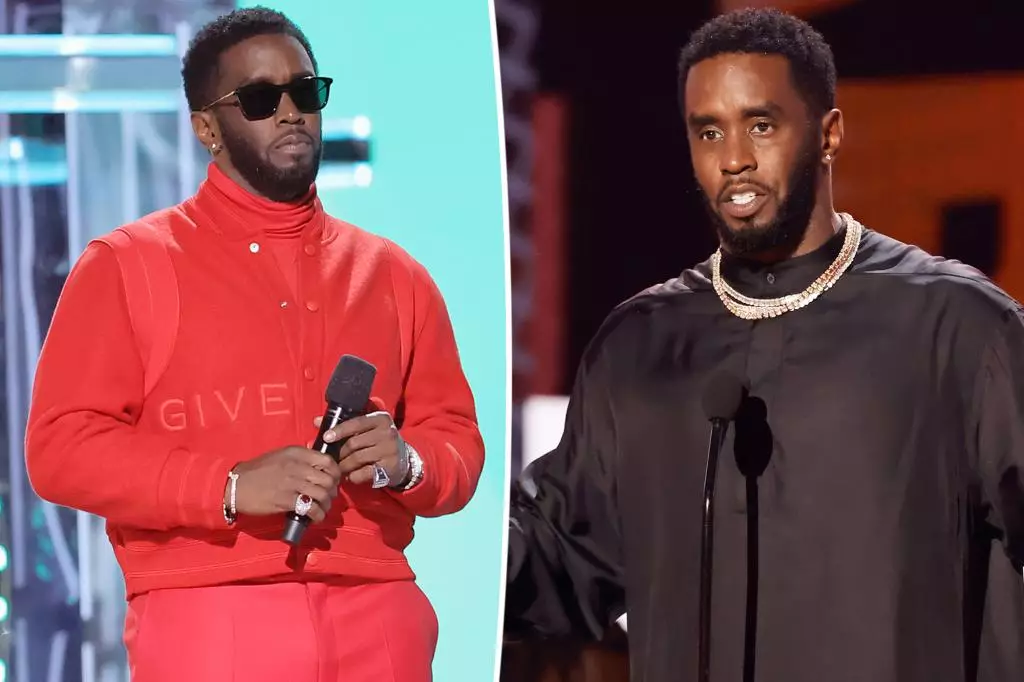In a striking turn of events, Sean “Diddy” Combs finds himself at the center of a high-profile sex trafficking and racketeering case. As the legal circus unfolds, the question arises: should Diddy take the stand in his own defense? While his legal team seems enthusiastic about presenting his narrative, experts warn that this could be a tactical misstep that might compromise his chance at a fair trial.
According to Meesha Moulton, an experienced attorney based in Las Vegas, the decision to testify poses inherent risks for the defendant. Moulton emphasizes that the principle advice given to defendants is typically to avoid the stand, as it exposes them to unforgiving cross-examination from the prosecution. Cross-examinations are notorious for their psychological strain; prosecutors will seize every opportunity to exploit inconsistencies in Diddy’s statements, aiming to trap him into admitting potentially damaging information.
Moulton points out that this kind of scrutiny can be particularly destabilizing emotionally. For a public figure like Diddy, whose persona is intricately linked with confidence and charisma, any indication of fluster or frustration during cross-examination could negatively influence how the jury perceives him. Emotional stability under pressure becomes a pivotal factor, and failing to maintain composure might alter jurors’ assessments of his credibility.
The stakes are undeniably high for the 54-year-old entertainer. Facing serious charges, including racketeering conspiracy and sex trafficking, his legal strategy holds substantial implications for his future. While Marc Agnifilo, representing Diddy, expresses eagerness to showcase his client’s narrative, Moulton advocates for a more measured approach. According to her, it is crucial for Diddy to prioritize a strategic defense rather than succumbing to an impulse to tell his own story.
By prioritizing legal strategy, Diddy might avoid the pitfalls that come from the unpredictable nature of courtroom testimony. It is well understood that when emotions run high, decisions can become reactive rather than logical, leading to strategic missteps that could jeopardize the case.
Nonetheless, there are nuances in Diddy’s potential testimony that may work to his advantage. For instance, taking the stand could shift the narrative from the prosecution’s accusatory framework to his perspective. This re-framing allows Diddy to challenge the prosecution’s evidence directly while simultaneously humanizing himself in front of the jury. Moulton notes that if Diddy successfully cultivates a more rounded portrayal of himself—highlighting his philanthropic endeavors and bolstering his reputation—it might leave jurors with a more complicated view of the allegations.
This complexity could create beneficial uncertainty for jurors, leading them to deliberate more cautiously before rendering a verdict. Yet, this strategy relies heavily on his ability to control the narrative and maintain emotional stability throughout the trial.
Challenges Ahead: Preparing for the Courtroom
Moulton contends that if Diddy chooses to testify, he must be prepared not just for typical questioning, but also for unexpected developments that may arise from new evidence introduced in court. This aspect of courtroom dynamics can be particularly daunting, especially given the nature of the charges against him. The alleged conduct detailed in the indictment includes horrific accusations of coercion, forced labor, and tarnished reputations sustained over decades. These serious claims necessitate an unwavering defense strategy that can withstand unpredictable courtroom exchanges.
The environment that Diddy will face is further complicated by the nature of the charges against him—sex trafficking and racketeering conspiracy—a context that casts a long shadow over his public persona. The recent evidence presented during raids, which purportedly uncovered substantial amounts of baby oil and lubricant tied to illicit gatherings, adds a layer of sensationalism to the story that further complicates his defense.
With a status hearing scheduled for October 9, the timeline for Diddy’s trial remains uncertain, yet the implications of his choices are growing increasingly clear. He has pled not guilty to all charges and is resolute in maintaining his innocence amid a train of ongoing sexual assault allegations. If ultimately convicted, he could face over 15 years behind bars—a consequence that starkly outlines the importance of savvy legal strategy at this junction.
As Sean “Diddy” Combs ventures into this complex legal battlefield, every decision will define not just his immediate future, but also the enduring legacy of a cultural titan grappling with significant and potentially damaging allegations. The courtroom awaits, and the narrative is yet to unfold.

